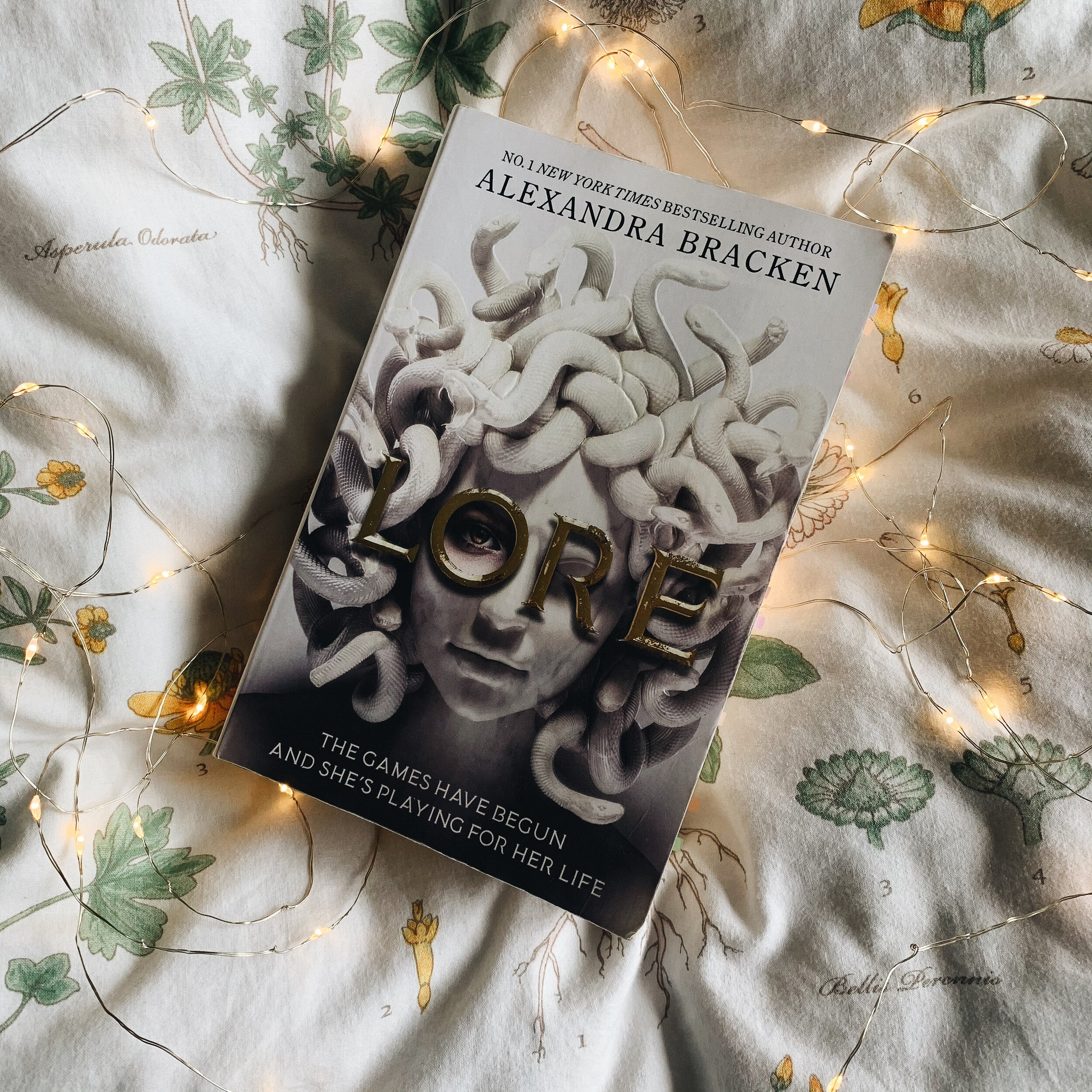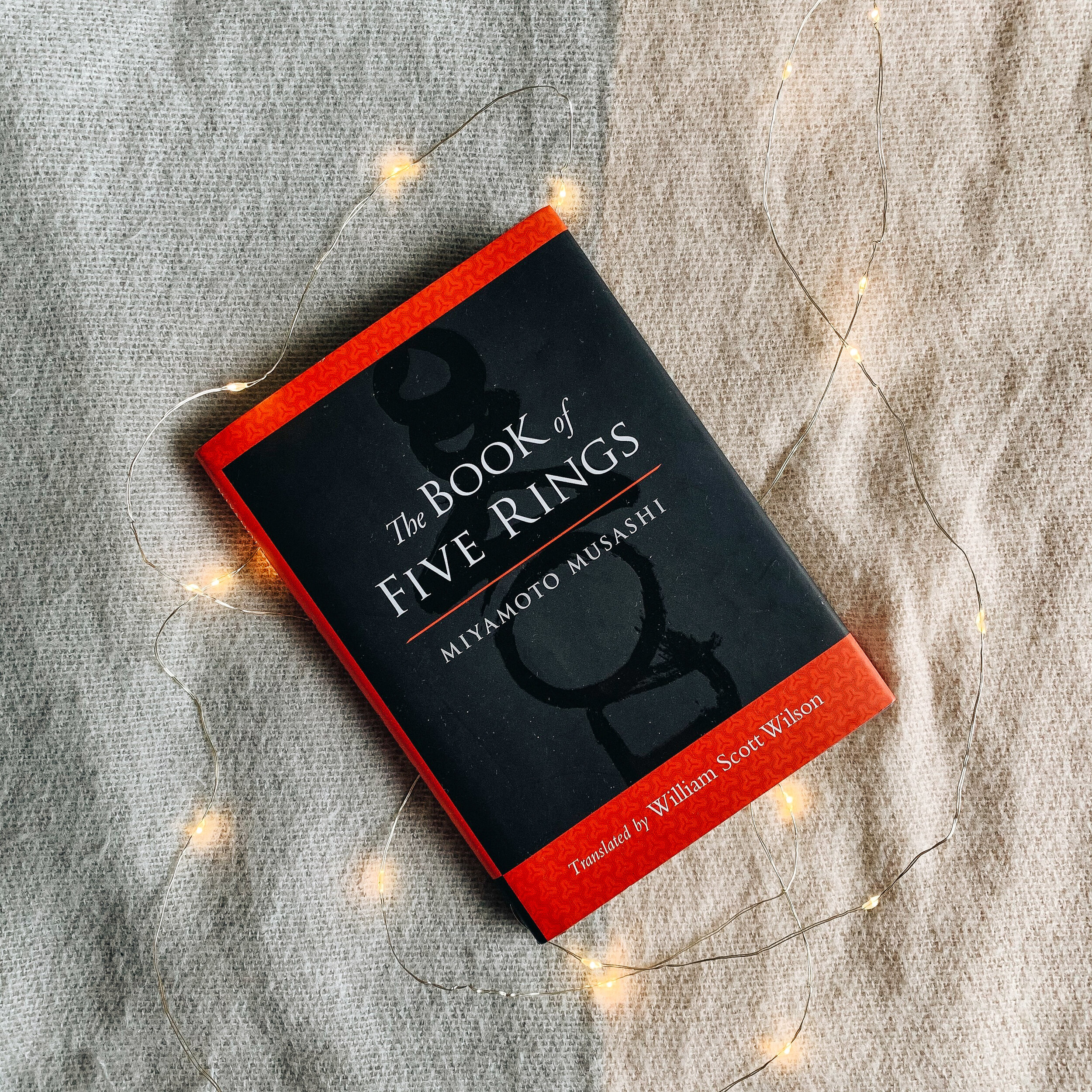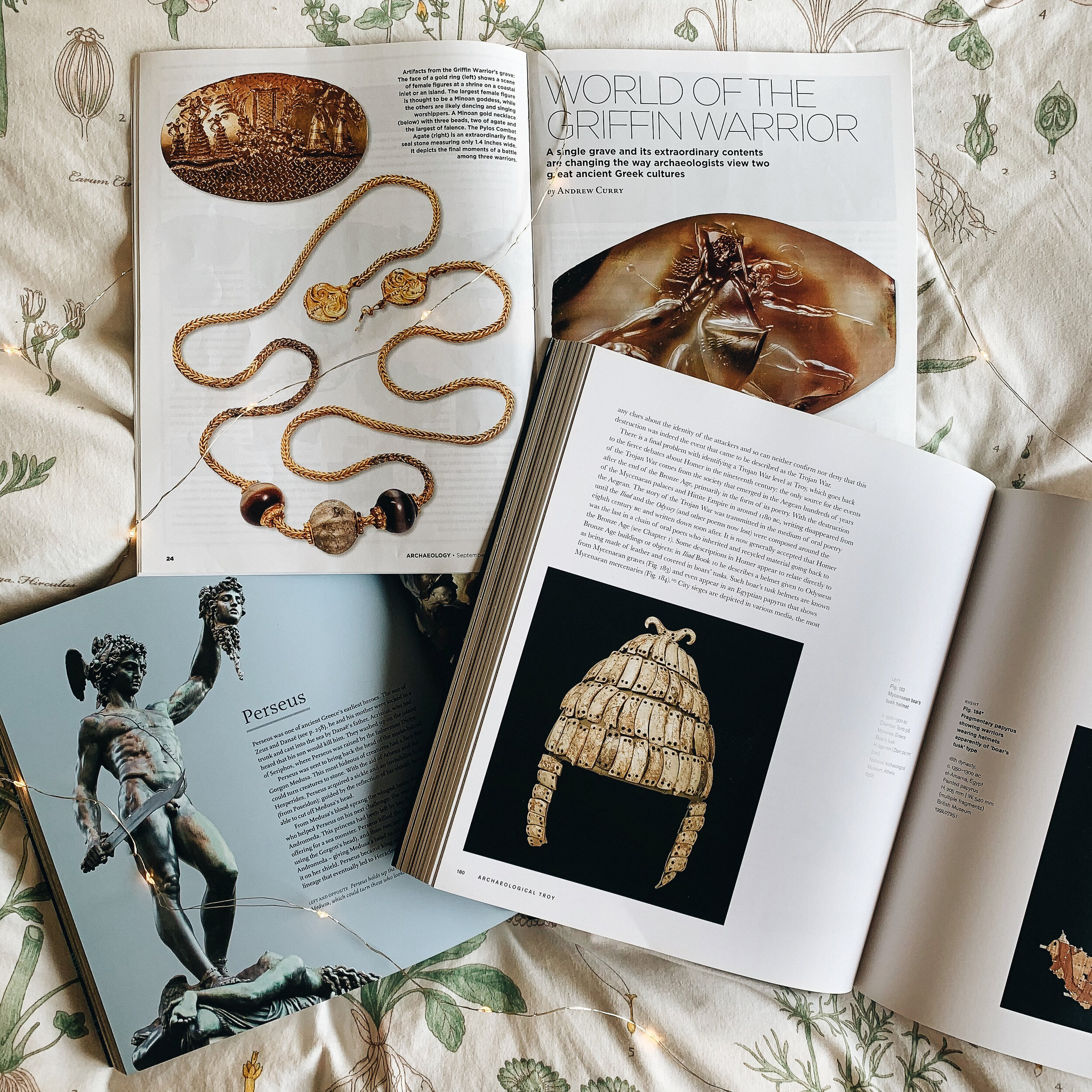Hey friends, and welcome to a different kind of post! I recently made a video for work called The 12 Olympians: The Gods and Goddesses of Ancient Greek Mythology and for me, I had so much fun writing and filming it, and it was probably because I was already really familiar with the stories from Greek Mythology. I thought to myself, this would be a good place to start for people who are just starting to get into the wealth of stories that Greek mythology has to offer, but where should they go from there? So, this is a little post with some book recommendations for people who want to learn about Greek mythology but have no idea where to start, or are a bit overwhelmed with the number of books out there! I am absolutely going to be drawing on my own experiences from learning about Greek mythology, so if you have any suggestions or helpful tips for those people who want to learn more, please leave a comment down below!!
Books to Read (Fiction!)
I know this may sound weird, but the place I started on my journey to learning about Greek mythology and becoming completely obsessed with it was Percy Jackson. Unlike many other people, I didn’t read this until I was about 15 or16, and honestly, I wish I had read it sooner. Not because I thought that it was too young for me (I still adore it), but because it meant I would have been exposed to the world of Greek myths far sooner. The Percy Jackson series by Rick Riordan is the place I’d start for anyone wanting to dip their toe into Greek mythology. It’s a 5 book series but they’re all pretty short, easy to read and very entertaining. But, while you’re reading about Percy, Annabeth and Grover go on quests, you’re actually being exposed to a lot of the core gods, monsters and myths of Greek mythology. So much of these books were inspired by myths, and once you finish this series, you will be familiar with the basic family tree of the Greek gods (well, as familiar as a person could be with that incestuous mess), as well as key monsters and stories which you will find in the ancient sources such as the Odyssey by Homer and Hesiod’s Theogony and Works and Days. If you’re looking for more of a Young Adult book with a bit of action, then I would recommend giving Lore by Aexandra Bracken a read. It isn’t as full of Greek stories as the Percy Jackson series is, but you do still get a good glimpse into some of the beliefs of the ancient greeks, and specifically the myths of the goddess Athena. Along these same lines would be A Touch of Darkness by Scarlett St. Clair (definitely more of an adult book), which is a re-imagining of the myth of Hades and Persephone, but it’s set in an alternate, urban setting. These books are fun, but also dive into a bunch of different myths concerning the goddess Persephone, the god Hades and a bunch others!
Online resources (Articles, Videos and Podcasts!)
This is the part of this blog post where I’m just going to hype up the company I have the pleasure to work for, as well as some of my friends who are doing an amazing job bringing Greek mythology and history to a modern audience, and making it accessible! Online resources are so handy, especially since they’re easily accessible and more often than not, they’re free! If you’d prefer to read some stuff, then I would recommend World History Encyclopedia (I am biased because I work for them, but they also do amazing work.) You can find an introductory article here on Greek Mythology which is such a great place to start, and from there you can find articles on all the main gods, goddesses, myths and legends! If you’re more of a video lover, then you’re in luck because we publish youtube videos twice a week, and so far we have published this video on the 12 Olympians, a video all about Hermes, a video on Artemis, and a bunch more! If you’re looking for some fun videos that combine cute makeup looks with greek myths, then you should definitely check out Hannah’s videos on YouTube! I LOVE her videos on the myths of Persephone and Hades, and Echo and Narcissus, they’re short and sweet, easy to follow and end up with a super cute makeup look! Finally, your one-stop-shop for videos on mythology, ancient history, philosophers, as well as interviews and book reviews is Erica’s incredible website Moan Inc. You can find Erica and Moan on Instagram, Youtube, podcasts and via her website, and she’s working so hard to bring the ancient world to a modern audience in an engaging and fun way!
Where to Next? Ancient Epics, Texts and Retellings!
Looking for something a bit more challenging? Already know the basics and you’re ready to dive in deeper? I would definitely recommend beginning with Hesiod’s Theogony and Works and Days. It’s a really short read, and although it’s an ancient text, it’s easy to read and is a great intro to the beliefs of the ancient Greeks. If you want to know a bit more about Theogony and Works and Days you can have a look at my review here! From here, I would then recommend The Library of Greek Mythology (also known as Bibliotheca) by Pseudo-Apollodorus. It reads very similarly to Theogony and Works and Days, but it’s a bit longer and delves deeper into the stories and myths of Greek Mythology, and you will find the stories of heroes such as Heracles, Theseus and Jason. Then, of course, you have the epic poems the Iliad and the Odyssey by Homer! I would personally recommend the E.V. Rieu translation of these two which are written in prose but still keep their poetic roots, and they’re super easy to read for stories that are over 2000 years old. You can read my thoughts on the Iliad here! Just remember, every translation is different, so if you’re not clicking with the first translation you try, pick up a different one! If you’re a fan of theatre, then reading Ancient Greek theatre is an awesome way to become familiar with some of the important figures and stories from Greek myths, and even though only a handful survive from what would have been hundreds of plays, we still have plays about some of the most interesting figures from Greek mythology such as Medea, Jason, Antigone, Oedipus, Agamemnon, Clytemnestra, Orestes and Electra (just to name a few!) They’re definitely easier to read than something like Shakespeare, and many editions now give you fantastic commentary and background info on the plays! My favourites are Medea by Euripides, Antigone by Sophocles and the Oresteia by Aeschylus. One thing I’ve noticed particularly in the past year or so is a HUGE boom in retellings, especially feminist retellings or retellings from female points of view. This surge in retellings seems to have been pioneered by Madeline Miller with her books The Song of Achilles and Circe, which are both brilliant, but if you’re just starting to dip your toe into Greek mythology, give Stephen Fry’s books Mythos, Heroes and Troy a go! Fry has such an entertaining way of retelling the myths but making them feel new - and, his somewhat linear narrative of the foundational Greek myths in Mythos is truly a massive feat. I would definitely recommend Mythos as an easy and enjoyable first step in learning about Greek mythology. If you’re interested in reading Classical Greek stories from a females point of view, I have a bunch on my TBR pile which include Natalie Haynes’ A Thousand Ships, Pandora’s Jar and The Children of Jocasta, as well as Pat Barker’s Silence of the Girls and Jennifer Saint’s Ariadne. I haven’t read some of these yet, but I can only assume it would be helpful to come into them with a bit of a basis for the original stories and texts, so maybe hit these types of books once you’re nice and familiar with the core gods, goddesses, myths and monsters of Greek mythology.
Hopefully I have given you everything you could possibly need to start your journey with Greek mythology! As noted, this is from my personal experience, so if you have any book recommendations or tips on getting familiar with Greek mythology then please, leave a comment below or reach out on instagram where you can find me at @kell_read!



















